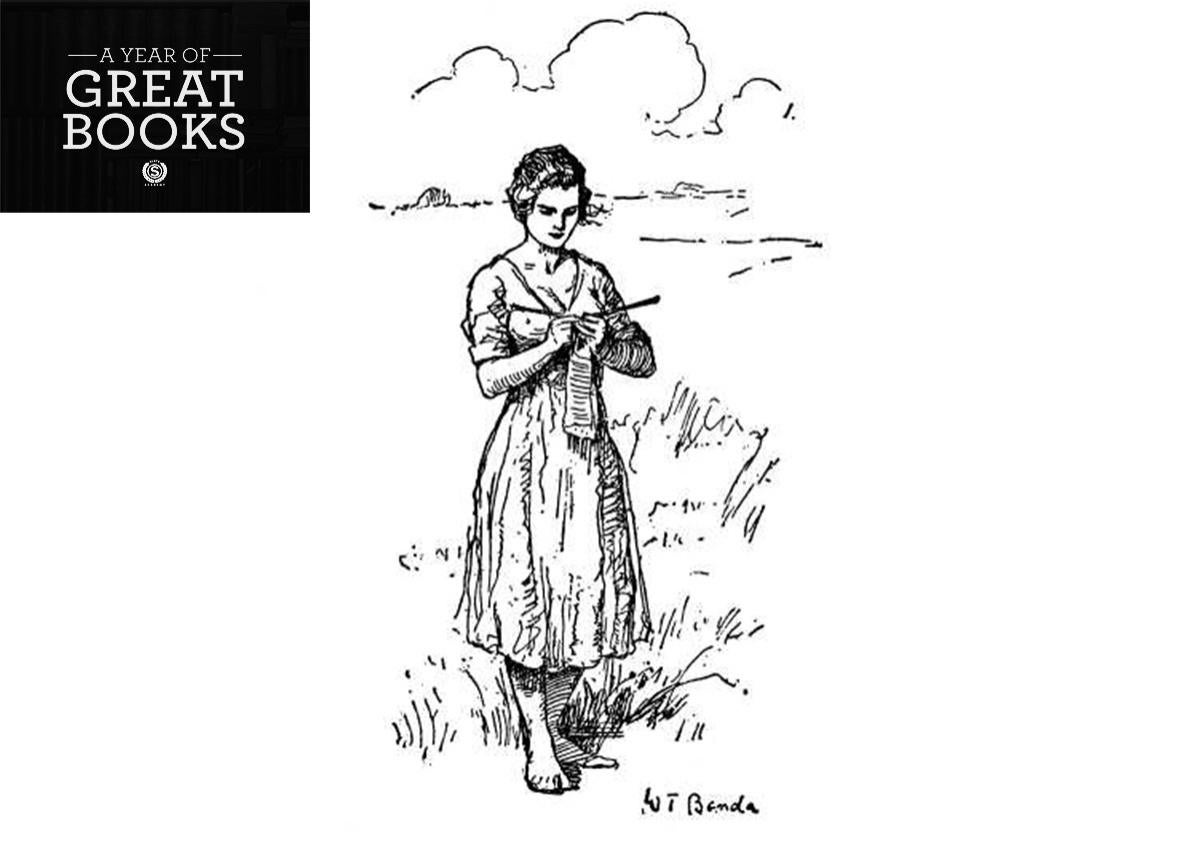This article is part of A Year of Great Books, a Slate Academy. To learn more, read Laura Miller’s introduction to the series, or visit Slate.com/GreatBooks.
It is no coincidence that in the opening pages of Willa Cather’s My Ántonia, her narrator, Jim Burden, at the age of 10, has buried his nose in a book about Jesse James. The boy is on a train traveling west from his home in Virginia, roughly the same trip Cather herself made at roughly the same age. While Jim will be greeted at the station by the rough-and-ready Otto Fuchs, a man who matches his dashing image of a cowboy, Jim’s destination will not be the wild, wild West—or at least not the version of it celebrated in the dime paperbacks of his time.
And yet, Jim stands on the brink of adventure. The Nebraska prairie where My Ántonia is set doesn’t see any shootouts, and the immigrants struggling to make lives for themselves there aren’t gunslingers or rustlers. Yet these farmers risk catastrophe and even death in a landscape that seems designed with the express purpose of making them feel small. How brave and tough and strong they are! The ones who survive, that is.
Cather was the first great American novelist to make the West—the real West, not the stuff of pulp fiction—her theme. No author has ever surpassed her wizardry in seamlessly fusing action and description to summon an intoxicating sense of place. She makes you see, smell, and feel the prairie, with its vast expanses and tiny details, endless fields of grass that ripple like the coat of an enormous animal and a fragile little beetle granted warmth and refuge from the coming winter by a vibrant, kindhearted girl.
The girl is Ántonia, the daughter of a Bohemian (Czech) family who arrive in Black Hawk, Nebraska, to find that they’ve been sold a second-rate plot of land with no real house to speak of—just a barely furnished cave. Jim himself is an (oddly grief-less) orphan come to live with his grandparents on their cozy, industrious farm. (The novelist A.S. Byatt once wrote of Cather that she could “describe domestic comforts, the minutiae of pots, pans, food, so as to make them glittering and strange, as though seen for the first time.”) He teaches Ántonia and her younger sister English and shares countless boyish escapades with them, but when he grows up, he moves back east to become an attorney. Yet Jim never forgets Ántonia, and the novel shapes itself around a series of episodes in which he encounters her again and again. Ántonia and her friends, the working- and servant-class girls of Black Hawk, are always more radiant and alive to him than the cultured ladies of the East.
My Ántonia is a novel saturated with nostalgia and longing, filled with the weight of unrequited love. Generations of readers have wondered what, exactly, keeps Jim and Ántonia apart, and in truth that’s not entirely clear. The novel’s central ache makes more sense when you know that Cather, while writing it, suffered a heartbreak that would stick with her for the rest of her life. Her close friend and patron, a Pittsburgh woman named Isabelle McClung, abruptly announced in 1916 that she was getting married. Cather was devastated.
Cather’s most intimate relationships were with women, including her partnership with the editor Edith Lewis, with whom she lived for 40 years. In her youth, Cather sometimes dressed as a boy, called herself Willie or William, and professed an ambition to become a doctor. Writing in the album of a friend, and recounting the “Opinion, Tastes, and Fancies of Wm. Cather, MD,” she listed “slicing toads” as one of her favorite hobbies and wearing skirts as “the greatest folly of the Nineteenth Century.” Intensely private, Cather left no written record explicitly indicating that she was a lesbian, but most (though not all) scholars of her life and work believe that she was.
Understood in this light, the stifled love between Jim and Ántonia becomes a muted emblem of what might have been in a different world. For Cather, who lived all of her adult life in the East, the Nebraska prairie represented a lost paradise of sorts, an environment of bottomless vitality and matchless purity, all embodied in Ántonia herself. It is full of perils as well, from brutal winters and scouring winds to the ever-present threat of rattlesnakes. But these dangers only make prairie life more vivid. Cupped in the hands of one of America’s greatest novelists, Cather’s readers will feel all of this almost as if they’ve lived it themselves.
